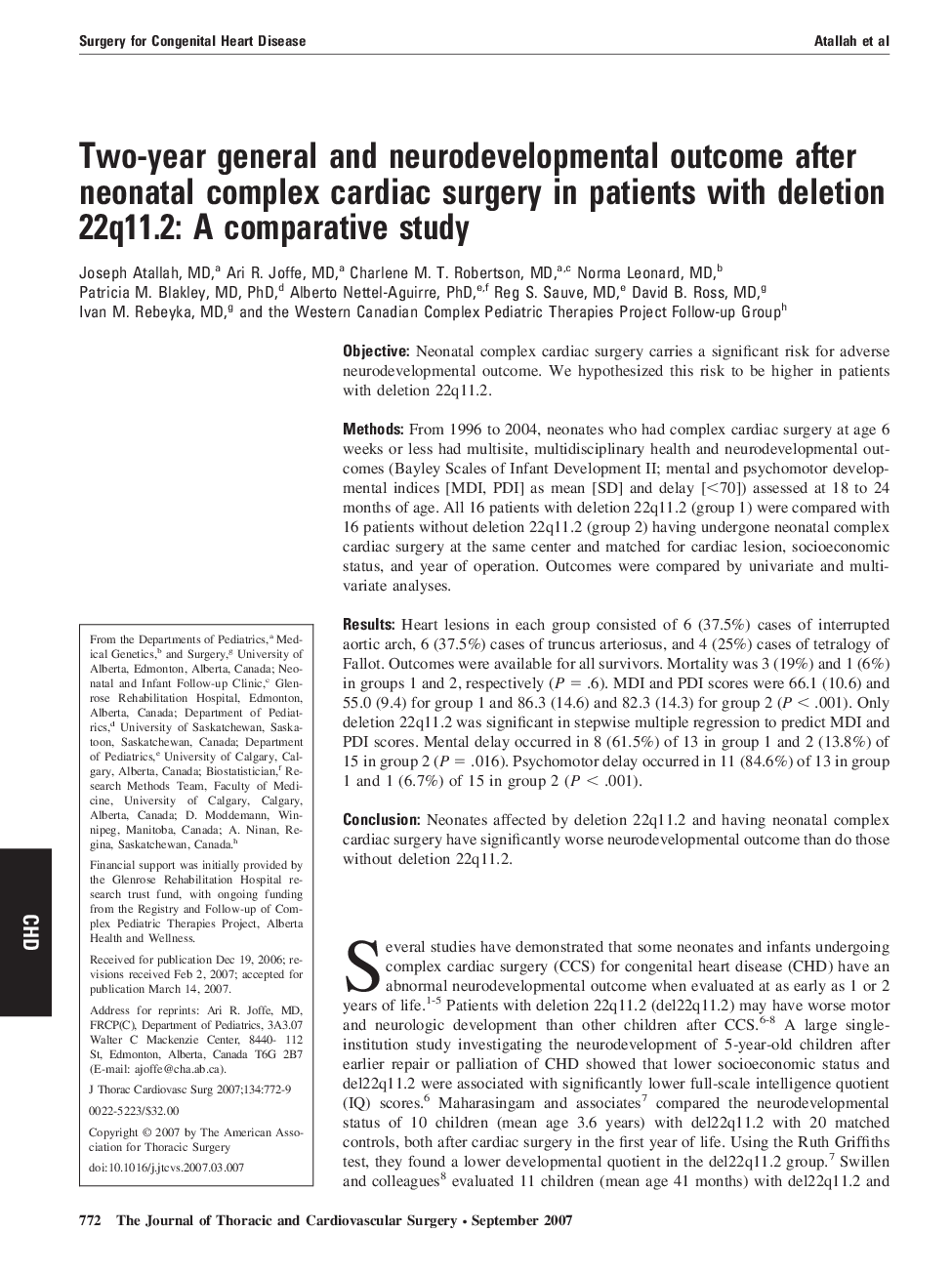| Article ID | Journal | Published Year | Pages | File Type |
|---|---|---|---|---|
| 2985672 | The Journal of Thoracic and Cardiovascular Surgery | 2007 | 8 Pages |
ObjectiveNeonatal complex cardiac surgery carries a significant risk for adverse neurodevelopmental outcome. We hypothesized this risk to be higher in patients with deletion 22q11.2.MethodsFrom 1996 to 2004, neonates who had complex cardiac surgery at age 6 weeks or less had multisite, multidisciplinary health and neurodevelopmental outcomes (Bayley Scales of Infant Development II; mental and psychomotor developmental indices [MDI, PDI] as mean [SD] and delay [<70]) assessed at 18 to 24 months of age. All 16 patients with deletion 22q11.2 (group 1) were compared with 16 patients without deletion 22q11.2 (group 2) having undergone neonatal complex cardiac surgery at the same center and matched for cardiac lesion, socioeconomic status, and year of operation. Outcomes were compared by univariate and multivariate analyses.ResultsHeart lesions in each group consisted of 6 (37.5%) cases of interrupted aortic arch, 6 (37.5%) cases of truncus arteriosus, and 4 (25%) cases of tetralogy of Fallot. Outcomes were available for all survivors. Mortality was 3 (19%) and 1 (6%) in groups 1 and 2, respectively (P = .6). MDI and PDI scores were 66.1 (10.6) and 55.0 (9.4) for group 1 and 86.3 (14.6) and 82.3 (14.3) for group 2 (P < .001). Only deletion 22q11.2 was significant in stepwise multiple regression to predict MDI and PDI scores. Mental delay occurred in 8 (61.5%) of 13 in group 1 and 2 (13.8%) of 15 in group 2 (P = .016). Psychomotor delay occurred in 11 (84.6%) of 13 in group 1 and 1 (6.7%) of 15 in group 2 (P < .001).ConclusionNeonates affected by deletion 22q11.2 and having neonatal complex cardiac surgery have significantly worse neurodevelopmental outcome than do those without deletion 22q11.2.
